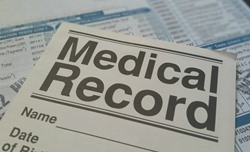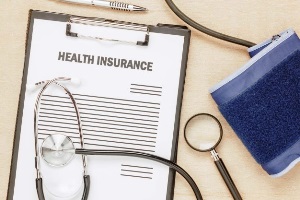It Takes Just a Few Minutes to Start Your Career in Medical Billing and Coding
Medical Coding Job Summary

Medical coders work on the front line of the billing systems for Ohio medical practices and hospitals. Coders have the responsibility to analyze the treatment records of patients and convert all services provided into universal codes. These services can be for diagnosis, medical or dental procedures, or any medical supplies or equipment utilized. There are various codes that are utilized in the conversion, including:
- CPT codes (Current Procedural Terminology).
- ICD codes (International Classification of Diseases).
- HCPCS codes (Healthcare Common Procedure Coding).
Medical coders use information from sources such as nursing and physician notes, patient charts, and lab and radiology reports. Coders must not only know what services were provided in total for accurate reporting, but must have a working knowledge of all private payer and government rules that influence coding as well. Improperly coded claims may result in services not being covered, services being paid for at a reduced rate, or the provider being penalized for improper or fraudulent billing. Since improper coding can actually cost Ohio hospitals and doctors many thousands of dollars in revenue annually, a good medical coder is an important asset to the healthcare team. They can operate in every kind of healthcare facility, including family practices, hospitals, clinics and critical care centers. It is not unusual for experienced medical coders to work at home as an independent contractor or offsite employee.
Medical Biller Job Duties

As crucial as the medical coder's job is, it would be for nothing without the contribution of the medical biller whose labors bring in revenue. Medical billing clerks are very important to Ohio medical facilities and are literally responsible for keeping them in business. Often the coder and biller may be the same individual within a healthcare organization, but they can also be two separate specialists. Once the coder has performed his or her job, the biller uses the codes supplied to complete and submit claim forms to insurance carriers, Medicare or Medicaid. After being paid by the appropriate entity, patients can then be charged for deductibles or additional out of pocket costs. On a routine basis, a medical billing professional can also do any of the following:
- Verify health insurance benefits for patients and assist them with billing questions or concerns
- Check on patient claims submitted and appeal those that have been denied
- Function as an intermediary between the medical provider, the insurance companies and the patients for accurate claim resolution
- Generate and oversee Accounts Receivables reports
- Produce and deal with unpaid patient collections accounts
Medical billers not only work for private practices, but also Ohio emergency care facilities, hospitals, nursing homes or medical groups. They may practice in any kind of medical facility that depends on the revenues generated by billing patients and third party payers.
Medical Coding and Billing Instruction and Certification
It's essential that you receive your instruction from a reputable school, whether it's a community college, technical or trade school. While it is not a requirement in most cases to obtain a professional certification, the program you enroll in should be accredited (more on the advantages of accreditation later). Most schools simply require that you have either a high school diploma or a GED to be eligible. The quickest way to become either a medical biller or coder (or both) is to earn a certificate, which typically takes about a year to finish. An Associate Degree is also an option for a more extensive education, which for the majority of colleges requires 2 years of studies. Bachelor's Degrees in medical coding and billing are not abundantly available. Once your education has been concluded, although not required in most states, you may desire to earn a professional certification. Certification is a great means for those new to the field to show potential employers that they are not only qualified but dedicated to their career. Some of the organizations that offer certifications are:
- American Academy of Professional Coders (AAPC).
- Board of Medical Specialty Coding (BMSC).
- The Professional Association of Healthcare Coding Specialists (PAHCS).
- American Health Information Management Association (AHIMA).
Graduating from an accredited medical billing and coding program, together with earning a professional certification, are the most effective ways to advance your new profession and succeed in the rapid growing Ohio healthcare industry.
Online Medical Billing and Coding Training
 If you are looking for flexibility and the convenience of attending classes from home, then choosing an medical billing and coding online school might be an excellent option. They can be particularly appealing to students in Ohio who plan on going to school while still working or have other obligations that make attending classes on campus difficult. And as an added benefit, online colleges are frequently less expensive than the standard classroom options. Costs for such items as tuition, study materials and commuting may be decreased or eliminated. But be cautious, as not all online colleges are reputable. For that reason it's important to establish that the online program you select is accredited to guarantee a premium education. We will review the benefits of accreditation in the next section. Just be sure to confirm that any online classes you are considering is accredited by one of the national accrediting organizations, for example the Council on Higher Education Accreditation. So if you are dedicated enough to commit yourself to this style of learning, then attaining your certificate or degree online might be the ideal choice for you.
If you are looking for flexibility and the convenience of attending classes from home, then choosing an medical billing and coding online school might be an excellent option. They can be particularly appealing to students in Ohio who plan on going to school while still working or have other obligations that make attending classes on campus difficult. And as an added benefit, online colleges are frequently less expensive than the standard classroom options. Costs for such items as tuition, study materials and commuting may be decreased or eliminated. But be cautious, as not all online colleges are reputable. For that reason it's important to establish that the online program you select is accredited to guarantee a premium education. We will review the benefits of accreditation in the next section. Just be sure to confirm that any online classes you are considering is accredited by one of the national accrediting organizations, for example the Council on Higher Education Accreditation. So if you are dedicated enough to commit yourself to this style of learning, then attaining your certificate or degree online might be the ideal choice for you.
